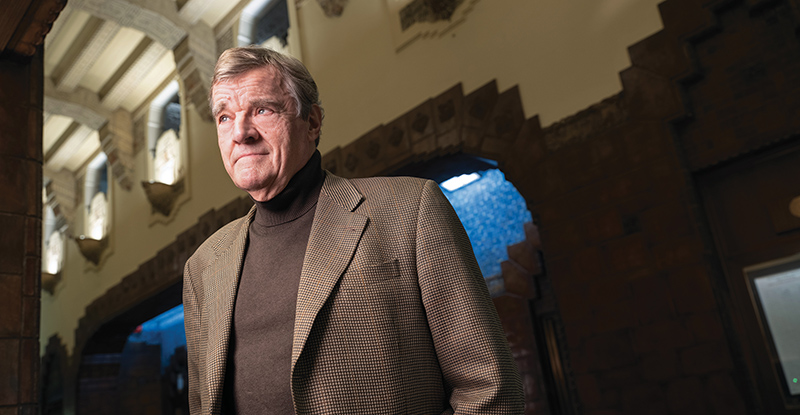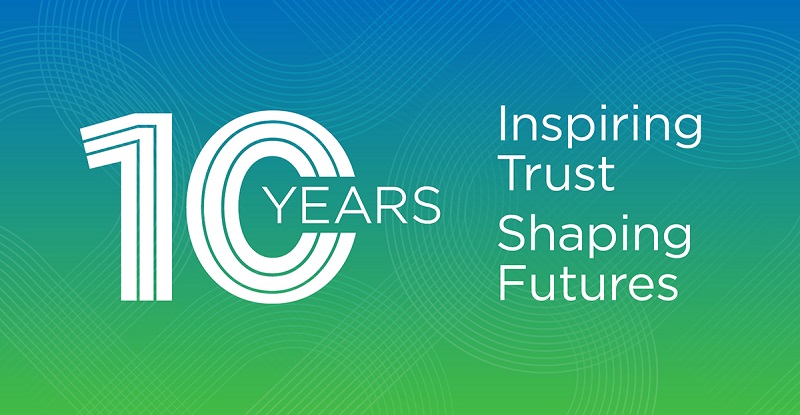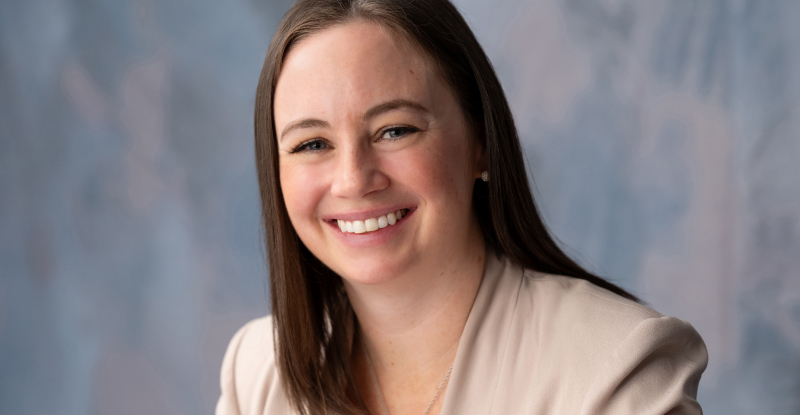
David Bowra, FCPA, FCA, didn’t have to look far to find inspiration for his debut crime novel, Banking on Murder.
“The book is based on a file I worked on early in my career,” he says. “When we discovered that all the company assets had disappeared, we bankrupted the company. Then I started getting threatening phone calls in the middle of the night. By the end of the file, someone went to prison … you can’t make this stuff up.”
David started writing crime fiction in 2019, when he retired as president and founder of The Bowra Group Inc., a financial advisory firm in Vancouver. He published Banking on Murder in 2021.
“The story moves between Vancouver and Northwest BC in the late 1970s,” he says. “A bank calls the loan on a company that’s been used by a gang for money laundering. The gang then moves to cover their tracks and get rid of anyone who's in their way.”
Having worked on a number of high-profile cases in Canada and abroad during his 40-plus year career in insolvency, David has plenty of real-life material he can draw on for future novels.
“With some creative touches, many of the cases I’ve worked on would make great stories.”
David started his career working for Big Four accounting firms in the UK and Canada, working his way up to partnership before founding The Bowra Group in 2004. Along the way, he established himself as a leading expert in insolvency and a valuable member of the professional conduct, investigation, and disciplinary committees for CPABC and his legacy accounting body. For his contributions to the profession, David was elected to the CPABC Fellowship in 2017.
 His career highlights are as diverse as they are many. They include working overseas for three months on an audit of the Sultanate of Oman’s Ministry of Defense, a job that required him to sign the country’s official secrets act: “This was before I started working in insolvency. When I interviewed for the job, I had no idea where Oman was. I ended up at a military base in the middle of the desert, 500 miles from the nearest town. I still have my 1975 security pass!”
His career highlights are as diverse as they are many. They include working overseas for three months on an audit of the Sultanate of Oman’s Ministry of Defense, a job that required him to sign the country’s official secrets act: “This was before I started working in insolvency. When I interviewed for the job, I had no idea where Oman was. I ended up at a military base in the middle of the desert, 500 miles from the nearest town. I still have my 1975 security pass!”
Another highlight was The Bowra Group’s 2005 resurrection of an abandoned pulp mill in Port Alice, BC: “Most of the residents of the town and neighbouring areas depended on the mill for their livelihood. We found a buyer who started up the mill, undertook a major facilities upgrade, and operated the mill for another five years.”
We caught up with David to talk about how he’s parlaying his professional experiences into his new endeavours as an author.
What inspired you to write Banking on Murder?
David: I knew I had a novel in me. I love reading crime fiction, and I’ve attended many crime writer festivals in the UK and Canada over the years. I enjoyed writing during my career, but most of it was business reports and the occasional paper for a legal journal. Writing fiction is quite different, but my style is the same: I’m direct, I don’t waste words, the story moves along quickly, and there’s no doubt about the message.
How would you describe the experience of writing a novel?
David: I try and write every day. It’s a lonely exercise. You don’t meet many people whilst writing, except in your mind. I enjoy writing, but it’s hard work. I’ve started to meet other authors to compare notes and have discovered everyone has the same challenges. You need to be pretty determined and single-minded to write and finish a book.
What do you love most about reading and writing crime novels?
David: It’s an escape, an entertainment. I enjoy solving mysteries. I find it easy to make up stories, and I’m always thinking of unexpected twists. As a reader, I love getting to the point in a book where I find myself saying, “Wow, I didn’t see that coming.”
Do you have any plans to write another one?
David: I’ve already started the sequel, Long Way Back. It’s based on one of the characters in the first book. Set in Montreal, it’s about gang crime at the port and the efforts of CSIS [Canadian Security Intelligence Service] to infiltrate the gang and go after the guys at the top: port officials, senior customs officials, and even members of the Sûreté.

Now that you’ve launched a second career, do you ever envision yourself fully retiring?
David: No. Even if you stop working, you never stop learning. I don’t mean just taking new courses. Travel is a great educator too. Staying relevant as the world changes around us is just as important whether you’re 35 or 70.
“Everyone needs a reason to get up in the morning. Whether its playing tennis, hiking, writing a book, mentoring someone, or spending time with your children or grandchildren, it’s important to keep finding ways to make a difference in someone’s life.”
Looking back, what was the best or most rewarding part of your first career?
David: I’d have to say it was taking chances: Trying a new country (Canada), a new practice area (insolvency), a new firm when progress stalled, and then starting a new business. A start up is just four empty walls, and a business plan is just a bunch of numbers on a page. People make things happen. Being able to help people develop in their careers and watch them grow has been very rewarding. I remember the people that helped me come to Canada in 1977, and those that helped me along the way. I’ll always be grateful.
Do you have any career advice for the next generation of CPAs?
David: “Don’t be afraid to try something new and move outside your comfort area. Don’t let your designation define you, nor assume you’ll always be in the finance department or the audit department. There’s a big world out there and as CPAs, the skills we’ve acquired can take us anywhere we want to go—management, education, government, and all lines of industry. It’s the most portable designation in the world.
I’d also suggest getting out there, networking, and finding a mentor–that may be the way you’ll find your next job. I don’t mean just social media. Get to know people. The older generation likes to give back, and one of the best ways they have of doing that is to help advise the next generation.
At the same time, I think young people have a lot to teach us about resilience. They represent a high proportion of the population that have been negatively affected by the pandemic—lost jobs, fewer hours, often unable to work from home. And yet, they’ve just got on with it and haven’t complained. They’re an example of how to make the best of a bad situation, and I’m really impressed by how they’ve handled themselves during COVID.
Both of your children are CPAs. Do you think they were inspired by your example and have they followed your advice over the years?
David: Knowing someone in the profession helped, but both my sons, Chris and Gareth, saw the value of the designation and the doors it opened into the business world. Chris also became a licensed insolvency trustee like I did. It turns out that kids actually listen to their parents more than we give them credit for! I’m very proud of both of them.
You can follow David’s adventures through his author website.
Megan Hooge is a communications coordinator with CPABC. A shorter version of this profile appeared in the January/February 2022 issue of CPABC in Focus.
All photos of David Bowra by Kent Kallberg Studios.



